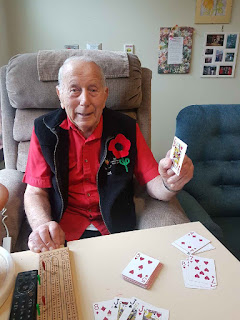Fentanyl awareness one way to ease Langley health challenges
Jason Cook, executive director of Langley Health Services and site manager of Langley Memorial Hospital, talked Tuesday to members of Greater Langley Chamber of Commerce about health challenges in Langley. He was joined by emergency room physician Dr. Robert Anthony.
The fentanyl crisis involves many more people than the
high-profile drug addicts on the streets of Whalley or Vancouver’s downtown
eastside.
It involves people who overdose in their homes or at
parties. In many cases, they die because those around them don’t know what to
do.
Jason Cook, executive director of Langley Health Services
and site manager of Langley Memorial Hospital, emphasized the importance of
awareness in combating the scourge of fentanyl, when speaking about health
issues to Greater Langley Chamber of Commerce Tuesday.
There were 30 deaths from fentanyl in Langley in 2016, and
the people most susceptible were men between 30 and 50. Dr. Bob Anthony, an emergency
room physician at LMH, told the audience that the most recent patient he saw
who died from an overdose was a high-functioning, university-educated bank employee.
“This is not a homeless or disenfranchised people problem.
It is people dying in their own homes,” Cook said.
They both urged business people to be aware of what their
employees could be doing, and be ready to help them with Naloxone kits. The antidote
to an overdose is easy to administer and is currently available for free at the
LMH emergency department. The provincial government has made a sustained effort
to get the kits into the hands of many people. It makes sense to keep one in
your car, Cook said.
Two Walnut Grove Secondary students died of fentanyl overdoses
in 2016 and their friends and family have made a powerful awareness video that
is well worth watching.
There were 113 overdose deaths in Surrey in 2016, and 311
throughout the Fraser Health Region.
Cook and Anthony talked about many aspects of health care in
Langley, and emphasized that the way forward is to reduce reliance on the
hospital as much as possible. The emergency department is getting a new $30
million investment, which will be complete by 2020, but they said it is
important that people who don’t need to go there have other options available
to them.
The projected demand on the hospital ER will be over 55,000
visits by 2025. The current facility was built for 25,000 annual visits, but saw
more than 47,000 patients last year.
Cook pointed out that Langley is among the fastest-growing
regions of the province, with an estimated population growth of 40 per cent by
2035. In addition to that, the percentage growth in the older portion of the
population, people who usually are most needing health care, is even higher –
57 per cent by 2024.
The hospital is increasingly efficient, but it is the most
expensive way to deliver health care. Cook said some dollars can go four times
as far if spent outside the hospital.
He pointed out that, while there is a shortage of family
physicians in Langley, the percentage of people who do have one is higher than
in many other areas of B.C. This is a very important way to deliver health care
outside the hospital. Langley is one of 11 communities being charged to work on
a model of delivering health care “closer to home.”
Cook and Anthony thanked the Langley Memorial Hospital Auxiliary,
which is marking its 70th year of service this year, for raising
more than $8.5 million for the hospital since 1994. Also thanked was the
hospital foundation, which raised over $500,000 at a very successful gala on
Saturday.
The Langley Memorial Hospital Foundation has committed to raising
$11 million for construction of the new emergency department.




Early childhood learning programs in Mission BC
ReplyDeletebaby care services in chilliwack